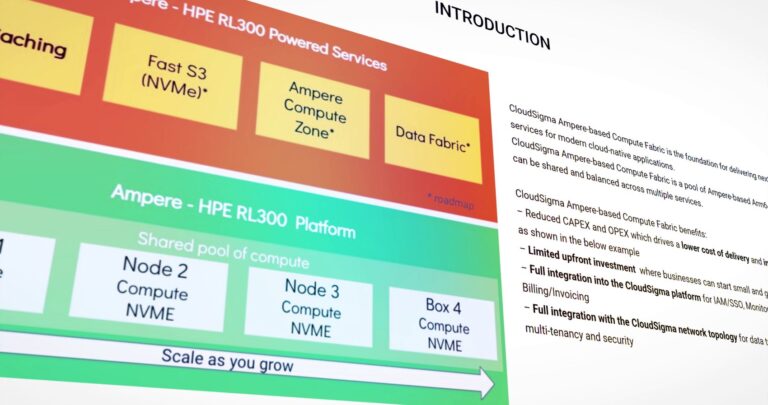From 2001: A Space Odyssey and Ex Machina to Wall-E and Her, artificial intelligence has reliably been a subject of fascination in modern culture.
But AI is no longer a thing of imagination, books or film scripts – it is already playing a pivotal role in both our professional and personal lives. And when it comes to the capability of this next-generation technology, we are now on the precipice of an exponential leap. The potential impact of AI on our lives cannot be understated, so the growing AI skills gap must be addressed if we are to ensure that businesses are prepared to take this jump.
AI has already transformed the way we interact with banks, how we shop and how we manufacture. Global spending on AI will top $500 billion next year, demonstrating that businesses across all industries are all too aware that it will be the defining technology of our time. Despite recognising the importance of AI, companies across Europe are facing a shortage of workers with proper skills training to adequately develop and support this rapidly advancing technology. Indeed, 34% of UK organisations expanded their use of AI during the Covid-19 pandemic, but only 27% of businesses leaders believe their non-technical workforce possess the skills necessary to take advantage of this technology.
The rollout of AI across sectors without an aptly trained workforce has the potential to stifle innovation and limit an organisation’s ability to leverage the technology in the most effective way possible. There is no predicting precisely how many jobs will be affected by AI in the future, but we do know that it will be many. And with this comes great opportunity: indeed, the Chancellor’s recently released Autumn Statement calls for support of the UK’s tech sector to boost the country’s future economic growth. We are uniquely well-placed to take advantage of the shift towards AI job creation: not only do we have 3 of the top 10 research universities in the world sitting within our borders, but we are also host to some of the most innovative institutions in the world. Supplying these emerging companies with the right talent could mean unbridled growth for the UK economy – something the country desperately needs right now.
So, what can be done to shrink the skills gap and ensure that the current and incoming workforce is suitably prepared to work alongside AI? Familiarity with technology begins with its socialisation, namely by gaining an understanding of what AI actually is. Luckily, people are already working with it on a daily basis – the iPhone in everyone’s pocket being the most obvious example. This AI-savviness will be essential when we look to a future in which the majority of the workforce will likely work with it in the context of their day-to-day jobs, whether that’s healthcare, cybersecurity or law. Furthermore, if the general population is familiar with what real AI can and can’t do, then future decision makers will be better equipped to recognise which technologies will deliver business value when they face up to an already burgeoning market of AI-based solutions.
Re-skilling is an important method of providing training for pools of workers already in technical fields, such as software development, data science and engineering. Upskill training offered by employers not only fosters an environment of life-long learning but also equips team members with the skills they need to ensure their business remains competitive in the face of rapid digital transformation.
Increasing capacity for maths, engineering and technical education in schools will further help to establish strong fundamentals that can foster an interest and familiarity with concepts like AI. In a recent survey of UK school teachers, 64% of respondents said they had limited access to computer science resources, and this increases to 79% when asked about AI resources. The UK government is taking initial steps to improve accessibility to the AI sector by investing millions into scholarships for AI and data conversion courses in institutions of higher learning. Encouraging interest in AI across a broad range of students, including those who are more proportionately excluded from AI and tech, like women, will ensure a more equitable distribution of resources in our communities.
Company-sponsored AI innovation hubs and labs strategically located near universities also provide an opportunity for organisations to tap into emerging talent and provide more specialised training while they are still in university or have recently graduated. That isn’t to say closing the skills gap is just about education and training in STEM subjects. We need people with a broad range of skills and an ability to understand key concepts that underpin AI, such as probability and risk. Driving interest in the sector is essential as governments and organisations around the world continue to place greater emphasis on advanced technologies for future growth. We can do this by engaging in hard skills and the continued socialisation of AI technology in education, work and beyond.
The world stands on the precipice of an AI-centred technological jump. In spite of the current skills gap, the UK is well-positioned to take on a key role in preparing the workforce to work alongside this next-generation technology. We must close the AI skills gap with training, reskilling and education to prepare future generations to take on the challenges and opportunities of tomorrow.
About the Author
Eleanor Lightbody is CEO at Luminance. Luminance is the world’s most advanced AI technology for the legal processing of contracts and documents. Founded by mathematicians from the University of Cambridge, Luminance’s AI reads and forms a conceptual understanding of documents in any language. Luminance uses this understanding to augment the spectrum of legal matters, from AI-powered contract drafting, negotiation and review to investigations and eDiscovery. Luminance is used by over 500 customers in 60 countries, including all of the Big Four consultancy firms, a quarter of the world’s largest law firms and multinational organisations such as Tesco and Ferrero.


